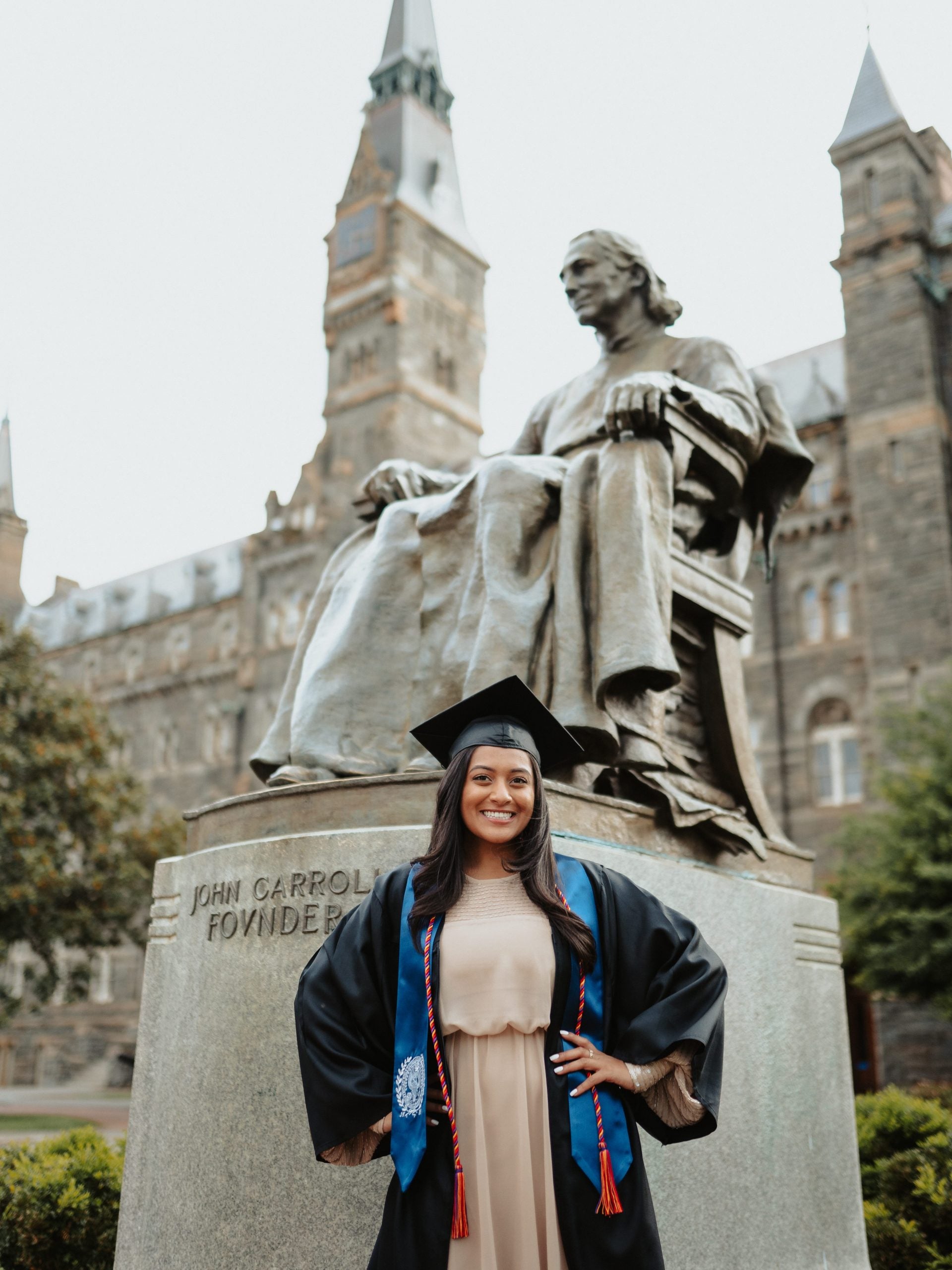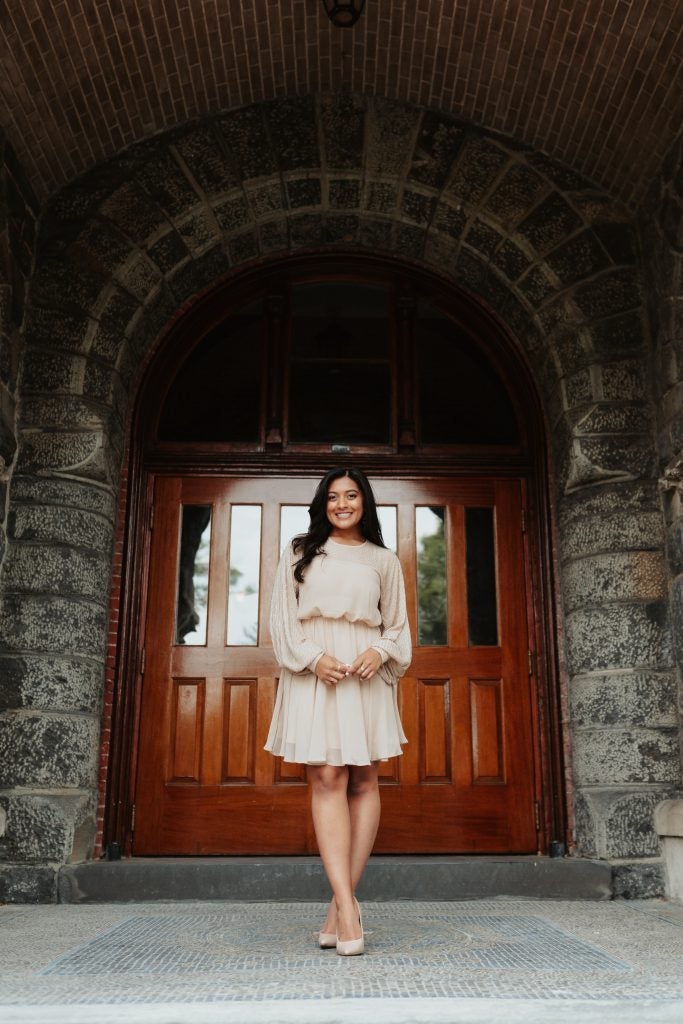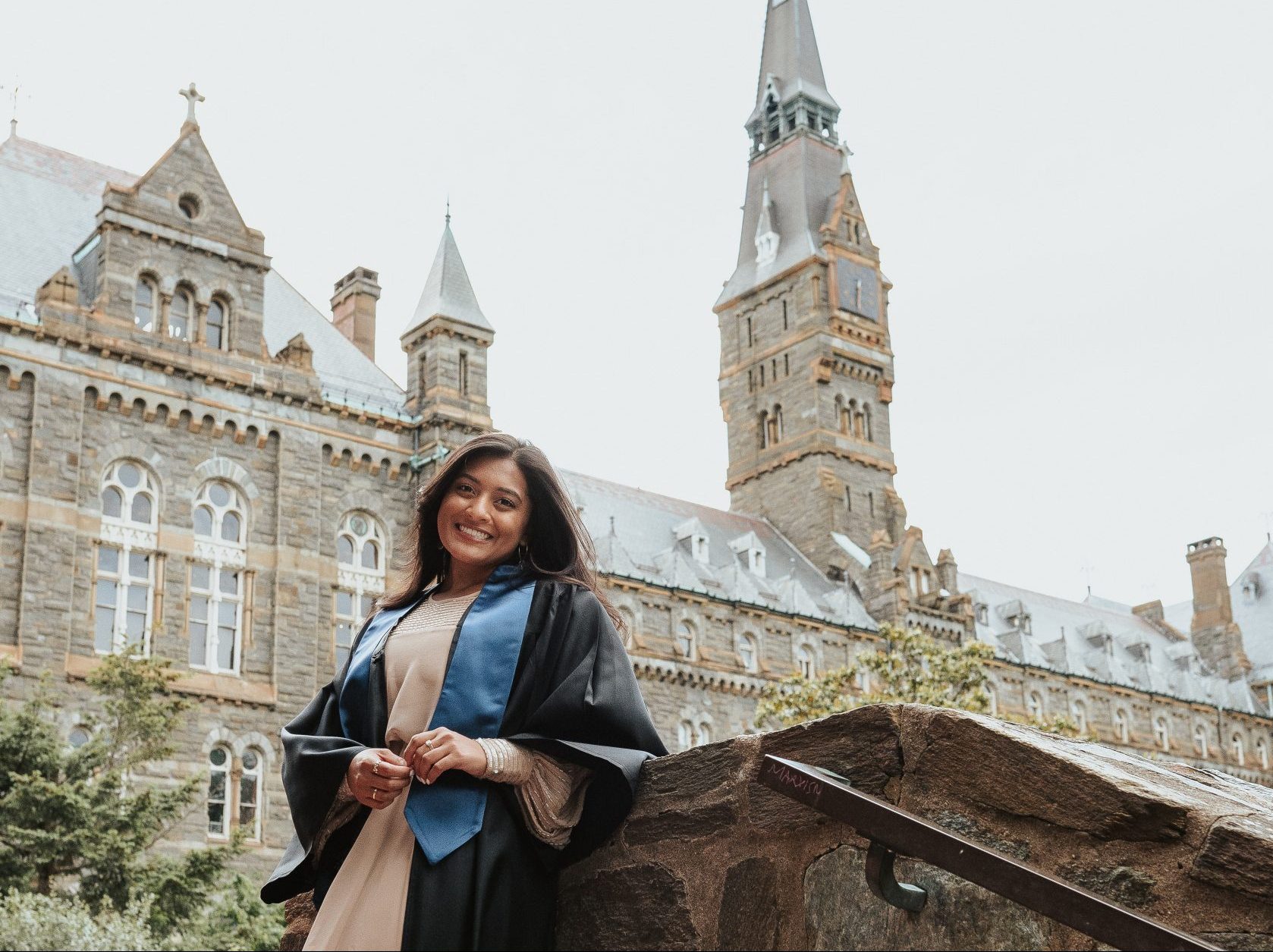Senior Proposes Legal Clinic for DC Youth at George Washington Law Through EDIJ Program
Caroline Jaipaul (C’21) is submitting a proposal to start a legal clinic at George Washington Law that will serve DC youth who are currently court-involved through oral and written advocacy and will strive to interrupt the school-to-prison pipeline in Washington. Jaipaul is completing this as part of her capstone project for her Education, Inquiry and Justice (EDIJ) minor.
Producing a Program

Originally from New York City, NY, Jaipaul came to Georgetown with the plan to study psychology. After taking courses through the English department, she chose to double major.
As the daughter of a public school teacher, Jaipaul was also drawn to learning about the education system. When she discovered that EDIJ combined her main interests, she decided to pursue a minor in the program.
During her senior year, Jaipaul completed a capstone course for EDIJ where she was tasked with leading a “learning experience” for her peers. As part of this assignment, Jaipaul was able to explore the relationships between education and the justice system, specifically looking at education within juvenile detention facilities and the outcomes of youth involved in the court system.
Having recently found out that she was accepted into George Washington’s law program, Jaipaul wanted to examine the clinic programs available at the school that provide legal advocacy and assistance to individuals who cannot otherwise afford adequate representation.
“After studying the programs in-depth, I was disappointed to learn there is no youth-oriented clinic at the university,” says Jaipaul. “Since I discovered this at the same time we began brainstorming for our capstone projects, I decided I would draft what I would want a youth legal clinic to look like at George Washington Law.”
Currently, some law schools in the district offer clinics which provide oral and written advocacy for child and family clients. However, none of them focus on preventative measures, such as restorative justice methods or conflict resolution strategies, which can be implemented in schools to avoid youth police and court involvement.
Jaipaul’s clinic would supplement this gap by focusing on youth in Wards 7 and 8 as those yield the most youth arrests, the most youth detention placements, the highest youth truancy rates and the most out-of-school disciplinary actions in the city.
“Rather than providing legal representation to youth in court, the program will connect law students to DCPS students to educate them about their rights and the law, establish alternative solutions to court involvement with their schools and empower youth to complete their education without becoming system-involved,” says Jaipaul.
The proposal drafted by Jaipaul would work in tandem with programs that have been enacted in recent years by DC’s government to reduce youth court involvement and minimize the number of youth in detention facilities.
Jaipaul says that her proposal is an effective addition as it “will reduce the likelihood that youth are interacting with police or law enforcement officials by placing law students in schools who will work with students who would otherwise be disciplined with exclusionary actions.
“Instead, youth will be learning about their rights in the law and be working collaboratively with their peers and school administrators to constructively restore justice in their environments,” she explains.
The Impact of EDIJ

When drafting this proposal, Jaipaul says that her Georgetown coursework, specifically the EDIJ courses, was essential as they “constantly challenged me to consider complex problems in the context of multiple systems, or from multiple perspectives.”
“This thought process helped me in drafting my proposal, as I was always considerate of who would be involved or affected by the clinic and what factors would influence its feasibility and effectiveness,” Jaipaul says. “My experiences during community-based-learning courses also helped me to situate how this clinic would function as a service-learning course for law students.”
Jaipaul noted that she is especially grateful to Sabrina Wesley-Nero, director of the EDIJ for “her patience and willingness to support my academic journey.”
“I have learned so much from her courses, and find the lessons I learned with her to be the most memorable and translatable to other areas of my life,” Jaipaul says.
The senior says that she is looking forward to attending law school at George Washington so that she can apply her knowledge of civil rights law and public service that she gained from Georgetown to clinical and pro-bono work.
Beyond the Classroom
In addition to her course load, Jaipaul worked as a staff writer for the Hoya, served as a retreat leader and participated in Relay for Life. She is a former employee of Hoya Kids Learning Center and currently works for the Hub where she researches undermatching in higher education. Jaipaul also interned with the Children’s Defense Fund and the Department of Justice’s Civil Rights Division, Disability Rights Section.
